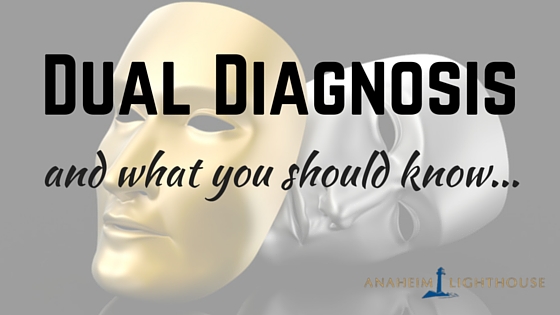Dual Diagnosis and what you should know

Dual Diagnosis is the term used when a person has a mood disorder such as depression or bipolar disorder (also known as manic depression) and a problem with alcohol or drugs. A person who has a dual diagnosis has 2 SEPARATE ILLNESSES, and each illness needs it's own treatment plan for that person's recovery to take place successfully.
Either substance abuse of mental illness can develop first. Someone experiencing a mental health condition may turn to drugs or alcohol to self medicate or improve the troubling mental health symptoms they might be experiencing. Research shows however, that drugs and alcohol only make the symptoms of mental health conditions worse. Substance abuse is also known to lead to mental health problems due to the effects drugs have on a person's moods, thoughts, brain chemistry and behavior.
FACT: About ONE THIRD of all people experiencing mental illness and about HALF of people living with severe mental illness also experience substance abuse. In the substance abuse community, an astonishing ONE THIRD of all alcohol abusers and OVER ONE HALF of all drug abusers have reported experiencing metal illness.
FACT: MEN are more likely to develop a co-occurring disorder than women. Other high risk individuals of dual diagnosis include people of lower socioeconomic status, military veterans and people with more general medical illnesses.
COMMON SYMPTOMS may include:
- Withdrawal from friends and family.
- Sudden changes in behavior.
- Using substances under dangerous conditions.
- Engaging in risky behaviors when drunk or high.
- Loss of control over use of substances.
- Doing things you wouldn't normally do to keep your addiction.
- Developing tolerance and withdrawal symptoms.
- Feelings like you need drugs or alcohol to be able to function.
These symptoms may vary to some extent. Knowing the warning signs, such as extreme mood changes, confused thinking or problems concentrating, isolating or lack of participation in social situations where as one used to, these can help identify if there is a reason to seek help for someone.
Dual Diagnosis Treatment
Treatment for dual diagnosis today mostly consists of an integrated intervention approach, where a person receives care for both a specific mental illness and substance abuse. Methods may not be the same for everyone, each person's situation is different.
Whether its detox, residential care or an outpatient program, finding supportive housing such as group homes or sober livings are most helpful for people newly sober or trying to avoid relapse. Medication is also a useful tool for treating a variety of mental illnesses and substance abuse. Psychotherapy and support groups are most helpful in maintaining an effective dual diagnosis treatment plan. Staying connected with a support group allows members to steer clear from isolation and other destructive tendancies.
Anaheim Lighthouse specializes in dual diagnosis programs. If you or someone you care about is struggling with mental illness and substance abuse, please call us today.
References:













